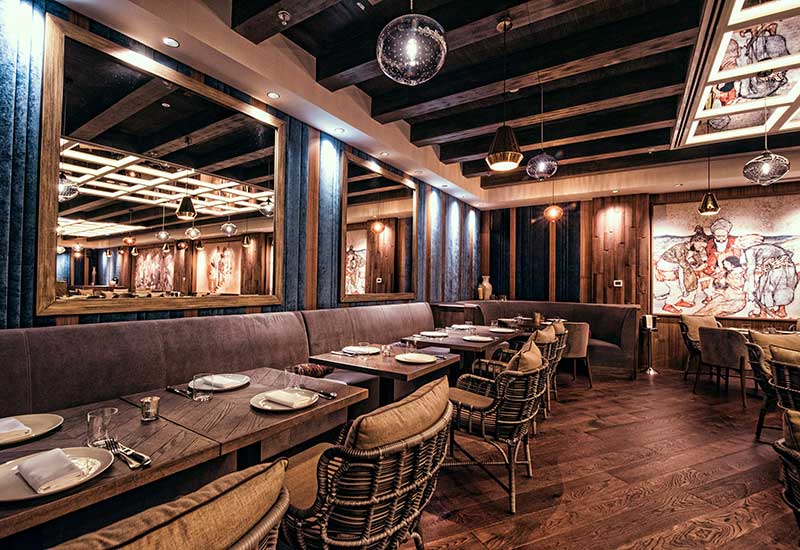In some ways, Tahir Shah was the poster child for Dubai’s independent foodpreneur. Starting Moti Roti as a pop-up operation bringing fresh, cool, Pakistani food to the people of Dubai, Shah was like a travelling salesman. Farmers’ markets, local events, Ripe market, even international events like the Formula One — you name it and Moti Roti had been there.
From there he upgraded to a food truck and founded TruckersDXB. After a quick Restaurateur of the Year nomination, he finally built himself a small bricks-and-mortar store in JLT. His dream was being realised — a relatively healthy summer business gave enormous hope for the rest of the year and the future beyond.
On a quiet Wednesday night in December, Moti Roti in JLT was buzzing with people. Roti wraps and parathas were flying out of the kitchen and lassis and iced teas were being blended and passed around under the watchful eye of the proud Shah. There was chatter and laughter, life and character. It was precisely how he imagined it to be.
Except for the fact that this was his closing party.
Business levels had never improved from the summer, cash flow was becoming a problem, and Shah and his partners made a decision to cease trading. Shah's money ran out long before his grit and determination did.
Five years after his dream began, it was over. However, here’s the thing: like many driven and passionate restaurateurs, it’s never really over, and I get the impression from Shah that he’s just getting started. You can find him at his new venture, thefoodfounder.ae, where he’s available for coffee and industry advice.
Restaurant closures happen all the time, and for many reasons. Some restaurants are so awful that they should be closed. Some seem to have all the right boxes checked and still can’t make it — like Moti Roti or even, arguably, Zahira.
Others, that seem to have deep, healthy roots with years of business behind them, also close down, perhaps unable to keep up with the constant market changes or unwilling to change themselves. Places like Round Table Pizza or Frankie’s, both having a respectable run of solid business, ultimately turned out the lights.
Some restaurants close despite being at the very top of their game. ElBulli could have operated for years to come; it had only 8,000 seats available, and yet had more than two million requests every year. However, Ferran Adria felt his elBulli “had completed its journey as a restaurant”.
So, what makes a restaurant successful? It’s a difficult question and if anyone says they have all the answers they are probably lying. You can do a billion things right and overlook a simple U-turn sign on the street outside that means no-one ever comes in.
We all know that, unfortunately, many restaurateurs confuse concept with menu. A restaurant concept is not just a menu, some recipes and standard operating procedures. Rather, it covers a location, a marketing strategy, a service style, design, ambiance, price point, a defined position in its competitive set, and, equally as important as the food itself, a long-term strategy and commitment.
Reflectively, Shah has a list for improving restaurant success – a wish list that he has scribbled down in the back of a Moti Roti-branded notebook. It’s a good list, very sensible and pragmatic. Interestingly, what this list doesn’t cover are any of the above considerations — all of Shah’s wishes are concerned, ultimately, with finance.
He wishes it wasn’t as expensive to start a business here; it can cost you as much as a downpayment on a house just to get permission to start a restaurant. Already you are handicapped before you even open, he explains.

| Advertisement |









 Search our database of more than 2,700 industry companies
Search our database of more than 2,700 industry companies









